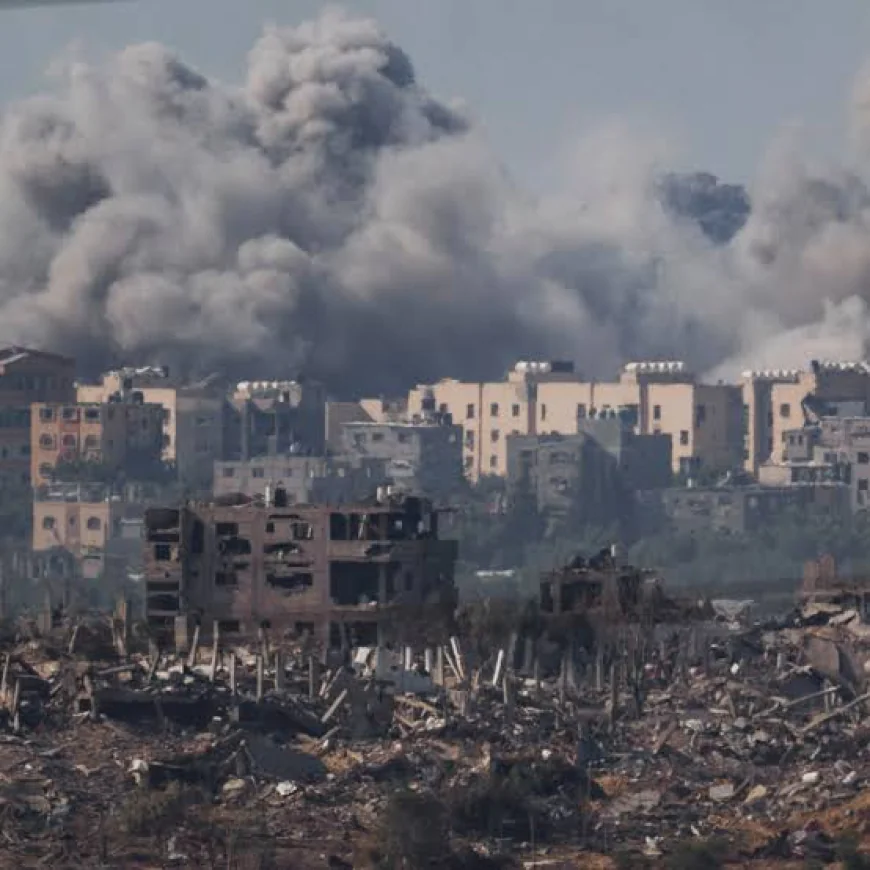Smoke Over Khan Younis: Israeli Air-Strikes Threaten Fragile Gaza Peace Deal
A new wave of Israeli air-strikes has struck the Gaza Strip, killing at least 26 Palestinians and plunging the fragile cease-fire into crisis. The bombardment described by the Israel Defense Forces (IDF) as retaliation for militant attacks has once again shattered the calm in one of the world’s most volatile regions, halting aid deliveries and deepening Gaza’s humanitarian crisis.

A Fragile Peace Shattered
Despite a cease-fire agreement brokered earlier this month, Gaza awoke to the sound of explosions early Friday as Israeli aircraft pounded targets across the enclave.
The IDF confirmed the strikes, saying they were launched in response to the deaths of two Israeli soldiers in southern Gaza. “We are targeting terrorist infrastructure and Hamas command posts,” an Israeli military spokesperson said.
But for residents of Khan Younis and central Gaza areas previously designated as safe zones, the air-strikes brought only fear and devastation. Local officials reported that several residential buildings and shelters were hit, leaving families trapped under rubble.
Civilian Toll Mounts
Palestinian health authorities say at least 26 people, including women and children, were killed in the latest bombardment. One of the strikes reportedly hit a former school that had been converted into a shelter for displaced families.
The casualties add to a staggering humanitarian toll: according to recent data, over 90% of Gaza’s residential buildings have been damaged or destroyed since the conflict reignited earlier this year.
“The air-strikes came without warning,” said a resident from Rafah. “We had to grab what we could and run. There’s nowhere left to hide.”
Israel Suspends Aid, Blames Hamas for Truce Breach
Following the attacks, Israel announced the temporary suspension of humanitarian aid deliveries into Gaza, accusing Hamas of “blatantly violating” the cease-fire.
Israeli officials claim militants launched cross-border rockets despite the agreement signed under U.S. mediation, part of a broader peace initiative backed by President Donald Trump.
Humanitarian groups, however, warn that the aid freeze will push Gaza further into catastrophe. “Civilians are paying the price for political failure,” said one UN relief worker.
Cease-Fire in Jeopardy
Both Israel and Hamas have publicly insisted that they remain committed to the cease-fire. But analysts say the truce is hanging by a thread.
“The risk of a total collapse is real,” noted a Middle East policy expert quoted by Reuters. “Neither side seems fully in control of all militant factions on the ground.”
The United States and Egypt are reportedly pressing both parties to de-escalate and reopen humanitarian corridors, while a new U.S.-backed UN Security Council resolution seeks to deploy an international force to stabilize the region.
Humanitarian Crisis Deepens
With the aid suspension and continued bombardment, Gaza’s already dire conditions are deteriorating. Hospitals are overwhelmed, electricity remains scarce, and thousands are on the move again seeking safety in a place where safety no longer exists.
“We can’t rebuild while the bombs are still falling,” said a nurse at Al-Aqsa Hospital. “We just keep losing people every hour, every day.”
Outlook
The latest escalation underscores the fragility of peace in Gaza. With mistrust mounting and civilian suffering deepening, the coming days may determine whether the region steps back from the brink or slides into another full-scale war.
Sources:
Reuters/TheGuardian


